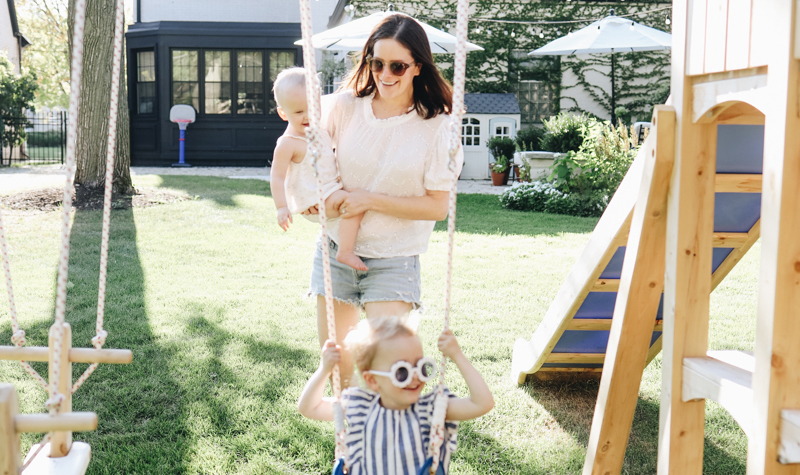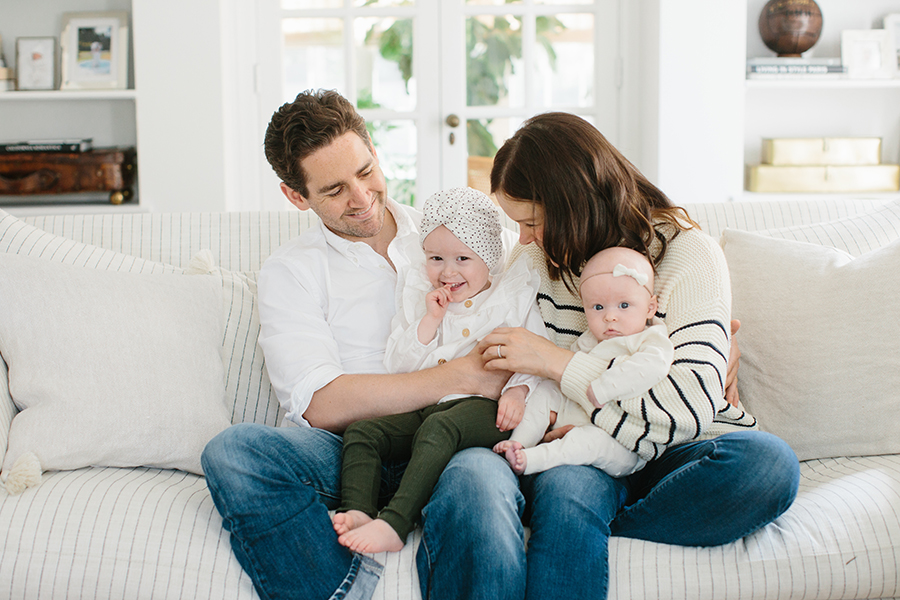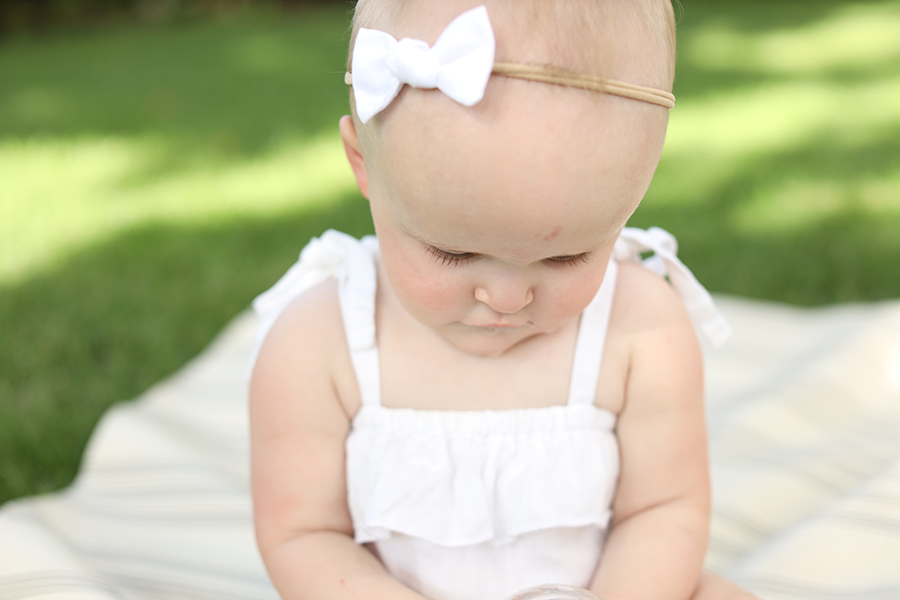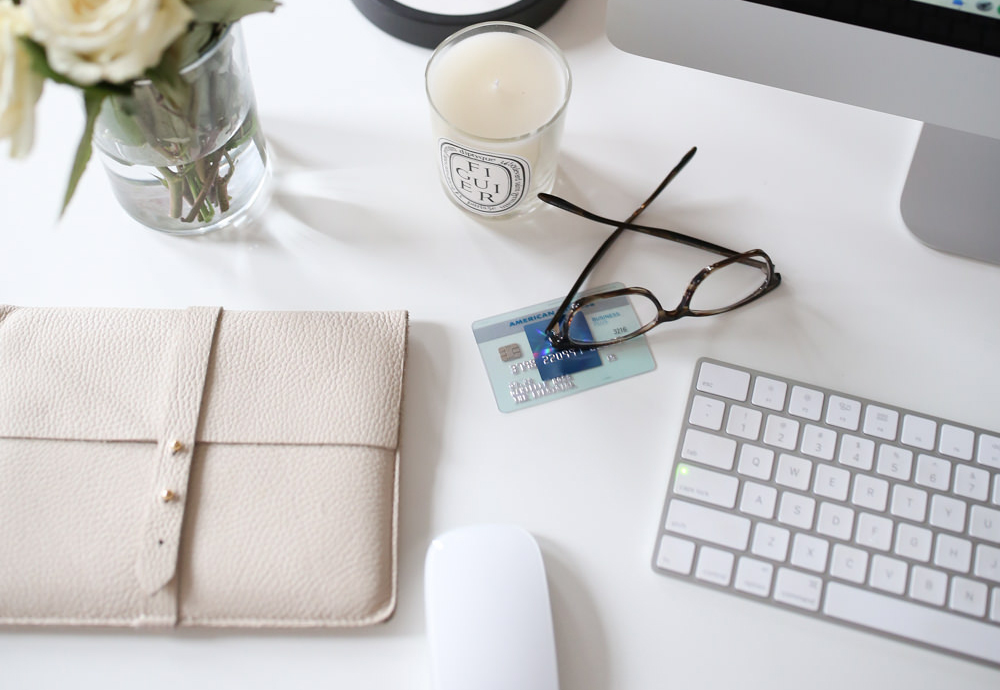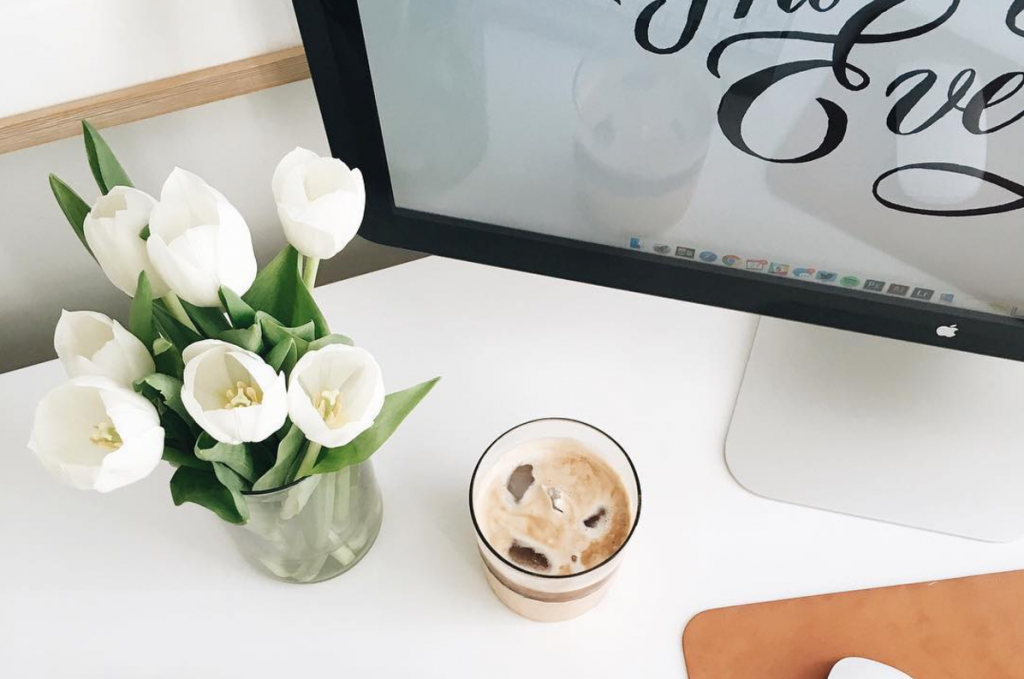Career
The Business of Blogging: Sponsored Content and Affiliate Links
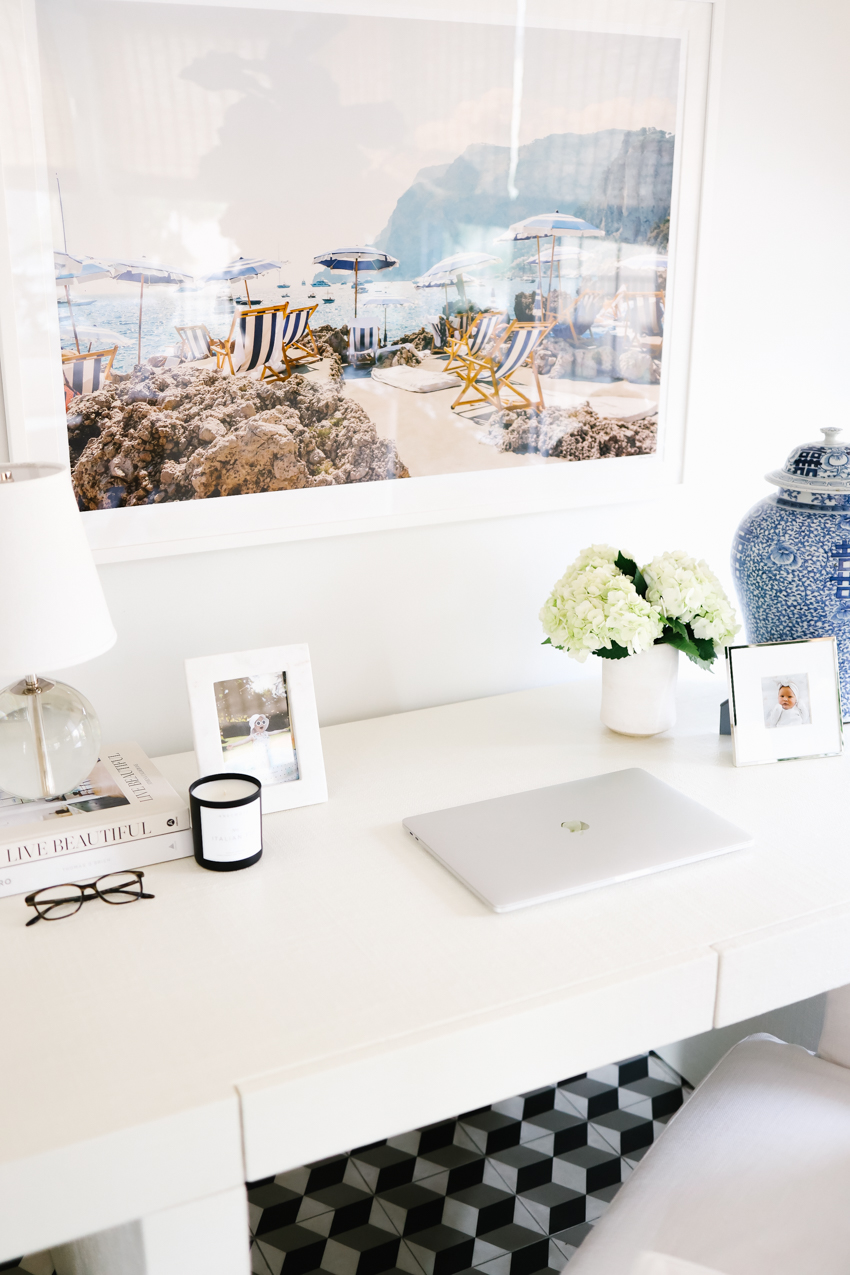

My job is one that didn’t exist not that long ago, and it seems that there is a lot of confusion (understandably so!) about how it all works. If you asked me to explain the inner-workings of blogging and partnerships just a few years ago, I would have had a very different answer for you than I do today. My main source of revenue changed this year as I shifted into blogging consistently. Things are always changing and this is an industry that is relatively new – we’re all learning as we go.
The Business of Blogging: Sponsored Content and Affiliate Links
Today, I want to do a deeper dive into blogging and being an “influencer” (cringe 😝). I’m going to share some mistakes I’ve made and how it all works. I’ll do my best to answer some of your questions, too. Before I get started, I want to share something that I went through as both a consumer and a content creator. Can we call us content creators and not influencers? Sounds a little less terrible, doesn’t it?
After Margot’s diagnosis, I took a big step back and saw the industry from a new lens. Ads felt different – \ often forced or disingenuous. As I eased back into social media and eventually, partnerships, I noticed a big internal shift. That time away changed how I see everything which I think and hope is a good thing. When you put your trust in someone and they tell you everything is the best, it’s not clear when something is gifted, or when every other post feels like an ad, how do you know what’s real and what’s not? Believe me – I get it.
Paid partnerships and affiliate allow many content creators to earn a living, and a lot of our content (in my case, most) isn’t paid. I took on less than one paid placement per month in 2021. It wasn’t until this year that I learned I could make up a lack of partnerships with affiliate. When blogging was a side gig for me, the hours for content creation just weren’t there – I wasn’t posting as often or sharing as much. Since I left (and sold) my company, I was able to make my old salary via affiliate alone. The % per most items is small, or at least the items I share.
There’s a lot to consider:
If you follow someone, their content is free to you and you have a choice to skip over or look at what they share. But, if you follow and like someone, shouldn’t you consider supporting their paid content or using their (affiliate) links? And if you find yourself not feeling great about what someone is sharing, it might be worth revisiting whether or not you should follow them. I don’t mean to imply that the responsibility shouldn’t be on our end, because of course we should be honest with you, but that’s not always going to be the case. Whether you see it this way or not, when you follow someone, you’re letting them in, and if following them doesn’t feel good, or if you don’t trust them, you should probably stop.
Here’s the way I see it. Most of my content is unpaid and I spend hours and hours producing just one post. Commission does not cost readers anything, and again, it’s most often a few dollars per item. So if you like someone, you’re supporting them.
How I make money
I probably shouldn’t say this, but paid partnerships aren’t my favorite thing to do. I love working with brands that I love, but I get nervous recording or shooting – is what I’m doing good enough? What will everyone think? I hate to admit this, but in the past, I said yes to partnerships that were good enough. I “made it work” and looking back, hate that I did that. For the past two years or so, I haven’t said yes unless it’s something that I really love and use regularly – and I promise you that will always be the case moving forward. If it’s a new brand, I won’t sign anything until I’ve had weeks or a month with the product (depending on what it is). I insisted on a month with our new mattress before agreeing to partner.
As of 2021, affiliate (via rewardStyle) has become my main source of revenue.
About 1% of clicks convert to sales and the average commission per item is 10%. I only post what I want to post when it feels right. Product roundups are something I enjoy putting together but I have to be excited about them. I do make commission on some of the brands I share with you so I can understand how it could feel disingenuous. Here are some affiliate stats for 2021: The most clicked-on item: 7,246 clicks, 17 sales, 0.23% conversion, and made $399.74 in affiliate revenue. Alternatively, the item that made the most affiliate revenue had 1,400 clicks, 17 sales, 1.21% conversion, and I made $1488.
A pair of sweater pants I shared last month (that I purchased on sale) were clicked on 2300+ times. Those 2300 clicks resulted in 68 orders and 195 products sold. There is value in what I (we) do, and based on most of the messages I receive, it seems that most people appreciate it.
I could make a lot more money if I started doing more fashion posts (like me being photographed). But here’s the thing: I don’t love being photographed so I don’t do it. I was never in this for the money, but to be completely transparent, it’s now a full-time gig and is bringing in full-time income. Would I be doing this all day for free? No. It’s time away from my girls. So I definitely put more into it knowing I’m getting paid, but it’s something I enjoy.
Brand partnerships are a close second
This year, I’ve said yes to 9 brands for a total of 11 partnerships and no to at least 25. I stopped counting a few months ago, but I say no a lot. I know it’s a privilege to be able to turn work down and years ago, I couldn’t have done that. But – I also owe everyone my honesty and if I said yes to everything and every other post was an ad, how would you trust me? Doing less than 1 paid partnership per month (average) allows me to not feel burned out or like I’m selling out.
Could I say yes to more, share more sponsored content, and make more money? Yes. But if I can make a full-time salary, slow down, not take on dozens of partnerships and only share what I really love, isn’t that enough? I’ve actually made 25% more on the fewer partnerships this year than the last 2 years, because being selective allows me to do so.
There are those that feel bitter about all of it and I do get it. When someone is pushing a brand or store you know isn’t one that they use/shop at daily that leaves us feeling…not great. Or maybe you’re just not really sure and doubt what they’re saying. As consumers, this is where we need to check in with ourselves and think about why we’re following someone. I do not personally follow people that I don’t like or trust.
If it’s a store or brand I don’t shop at or use regularly and something I wouldn’t promote if I wasn’t getting paid, I say no. That doesn’t mean it’s not a great brand.
As I mentioned earlier, there were times I said yes to brands that were fine enough because I could make it work. Over the last few years, I felt an internal shift and it doesn’t feel right to promote anything that isn’t a part of my life. I ask myself if I love this brand/shop/product. Do I think it makes sense for my audience? Do they have a budget? Is the budget reasonable given the ask? Some brands want to pay less and get a lot more, or just want too much to begin with (a weekly post for a few weeks, for example) and I don’t want to do that, so I say no. Will I have enough time to really test a product out if it’s new to me?
My friend Ailsa posted about Branch Basics earlier this year, so I placed an order with her code to try it out. I was blown away by the product and decided to share it with my audience, and she connected me with the brand because I loved the product and wanted to work with them. They weren’t taking on partnerships at the time so I partnered via affiliate and have since signed a 3 month contract with the brand (so excited about that)!
And ad revenue
A few years ago, I started hosting ads (via an ad network) on my blog. I display as few ads as possible so I’m making as little as possible, but it pulls in almost enough to cover our health insurance every month. I could make a lot more but I’d have to display a lot more ads and be more open to ads I wouldn’t want to see, and that’s not something I’m willing to do.
Let’s talk about gifted products
Brands regularly offer to send product with the hopes of being promoted. As a founder of Anecdote and a blogger, I know the value on both sides – I hear from brands I promote and see the sales. I saw how content creators (really prefer that to “influencers”) helped drive sales to our store. I say no to most gifting offers because it’s a lot easier to just buy something I want and I wouldn’t not want to promote someone that gave something to me. Here’s a good example: a small, women-owned shop offered to send the girls some silicone stackers. They are priced at about $14 and looked so cute, so I said no but placed an order and promoted the store.
There are small shops I continue to work with and promote a lot, and I’m ok with them sending product if they see the conversion and enjoy the partnership. I shop their stores when ordering gifts for friends, so I will support their small business, too. You will also always know when that’s the case because I’ll tell you. But as always, I will only share products I love with you.
When I follow someone who is upfront and honest, who I know says no to brands all the time (like my friend Jess), I know I can trust them. It is my hope that I am that person for you.
For-trade partnerships
I think a lot of the time, there’s confusion about what a partnership means, because most of us don’t share the terms. Is it paid? For trade/gifted product? Affiliate?
I have a few for-trade partnerships, usually in the form of store-credit in exchange for set promotion. Sites with a Shopbop ad receive monthly credit in exchange for hosting the ad. I’ve done this for years and because it’s a store I’ve shopped at for forever, it feels very authentic to me. I receive additional credit for linking to 10 products per month, but often go beyond that because I love the store and the brands they carry. It’s win-win since I am getting “paid” via credit to promote a store and brands I love.
I’ve done this with Serena and Lily, too. They will gift product in exchange for a blog post, so if and when there is something I want or need for our house, I’ll say yes, but otherwise, will politely decline.
Maisonette (a store I frequently shop at for the girls) asked me to test out joining a program where I post product in exchange for affiliate and credit. The toys and clothes are darling (I love their brand, Mason Me!), so I can continue to do what I’m doing, and get the bonus of credit for items I would purchase anyway. And like the other partnerships, I have complete freedom to link to the items I love.
Commission partnerships
Earlier this year, I partnered with a few brands to design/release a new product that we would both promote. This is something I see others do from time-to-time, and collaborations (designing something, releasing a new product etc.) In normal circumstances, I would have received a % of sales, but for obvious reasons, that % went to our childhood cancer research fundraiser.
Your blogging/partnership questions, answered:
Do brands come to you or is it the other way around?
99% of the time, they come to me. This year, I’ve said yes to 9 paid partnerships (total) – and 3 were with the same brand. I have said no to at least 25 (probably more) because for me, if it’s not an immediate yes or there isn’t a desire to test the product out for a while and see if I love it, it’s a no. But again, that wasn’t always the case. Live and learn.
When something is gifted or sponsored, does that need to be disclosed? Is there a “right” way to share?
Yes. All partnerships, discounts, and gifted products should be disclosed. Many are not and I can see how that might be frustrating. But yes, it should be.
I don’t like when someone promotes something you know they don’t really use.
I understand both sides of this one because we’re all trying to make a living. As a consumer I don’t like it, but I also understand needing to get paid. It’s something I see all the time with other brands and it’s something I’ve been guilty of in the past. I have said yes to partnerships that were fine enough, but at stores I don’t regularly shop at. My rule is if it’s something I wouldn’t post about on my own or it’s not a brand I use regularly, it’s a no.
A good example: I love the girls Tonie Box and share it all the time. Last month, I sold 177 Tonie Boxes and made $216. Keep in mind I have to pay taxes on that amount, so really, it’s not that much money given the number of sales. But when parents regularly message to say how much their kids love their Tonies, or when I can promote a small, women-owned business, you just can’t put a dollar amount on that.
This may be very technical but how does it work from a tax reporting standpoint?
It works the same way any other payment would work. I fill out a form and pay my taxes, even for gifted products.
What was your first paid partnership?
Honestly, I’m not sure. I started using the same spreadsheet (new page per year) to track everything in 2017, and the first one is a $300 partnership from Noosa (yogurt) but I know that wasn’t my first.
Do you set your fee or does a brand dictate the terms? How do you know what to ask for?
I have a media kit with rates, and it’s been a learning curve over the years. Fortunately, I have a few friends who do what I do that I can be very open with, so we’ll talk a little bit about what we’re charging – that has helped a lot. It’s about more than audience size, because audience engagement is very valuable. But really, I had no idea what my rate should be until I talked to a few others. There were also a couple times I took a chance and asked what the budget was after sharing my stats and was like umm ok…I’m not charging enough. 😂
What if you use/like the product but don’t like the contract/terms offered?
It really depends on what I don’t like about the contract or terms. If a brand reaches out and wants to partner and it’s something I love but they don’t have a budget or the ask is too big, it’s usually a no but not always. I have taken a lower rate to help a small brand out, or because I believe in their mission and product. If it’s something I really love, I’ll share it regardless.
Do you donate gifted product you don’t need?
I don’t say yes to anything that doesn’t come from a brand I already love, or that I do not think we will use regularly, so it’s very rare that I say yes to gifted products. If something shows up, I donate it. When I get emails from PR companies asking for an updated address to send gifts to, I never reply so I’ve dodged quite a bit. 😂The extra crap, packaging, and unnecessary items are all too much, and I don’t want any of it in my home.
Here’s a time I said yes.
A friend reached out about a new clean fragrance brand (she’s the creative director). So I said I was open to trying it, loved it, shared it in one instagram story and they saw 130+ orders overnight. I had nothing to gain but wanted to share something I loved and promote a small business. They since offered an affiliate link but I only share it when it makes sense, so I’m not pushing the same product over and over with the hopes of getting paid.
Melissa and Doug offered to send toys for the girls, but I asked if they’d be willing to send some to our hospital’s oncology department instead. They said yes! That was wonderful.
Are brands getting hard to work with now vs when you just started out?
Personally, I’ve found that it’s actually a lot easier. Years ago, brands would want very specific (sponsored) language that often read like an ad. The brands I work with have been amazing and offer so much creative freedom. I’m also really confident in my approach so feel comfortable going back and saying that what they want me to say sounds too sponsored. I’ll usually get a list of things that are worth considering, but they’re just so great now. I won’t say yes if that’s not the case because I need to be able to be myself.
How long does it typically take to make money blogging?
It really depends on your growth, audience, and their level of trust in you. I started in 2007 (#vintageblogger) and want to say I had my first paid partnership in 2014 or 2015? I wish I had kept better track back then but it was so long ago and I had a whole other business to focus on. This was a side gig until very recently, and I can’t discuss the inner-workings of my former company, so I can only speak for my personal experience and brand.
I’ve always wanted to start a blog. Is it worth it?
If you’re doing it for the right reasons, yes! How could I say otherwise? I did this from 2007-2015 until I started getting paid. And I wasn’t in it for the money. 😂 The connection, friendship, amazing women who support one another…I love it. If it’s so you can get free stuff/make money and work less, no. Yes, it’s nice working from home and having flexibility, but I’m at the computer a lot and if I don’t work, I don’t really make money. This blog has been a gift, and it’s one I will always be grateful for.


